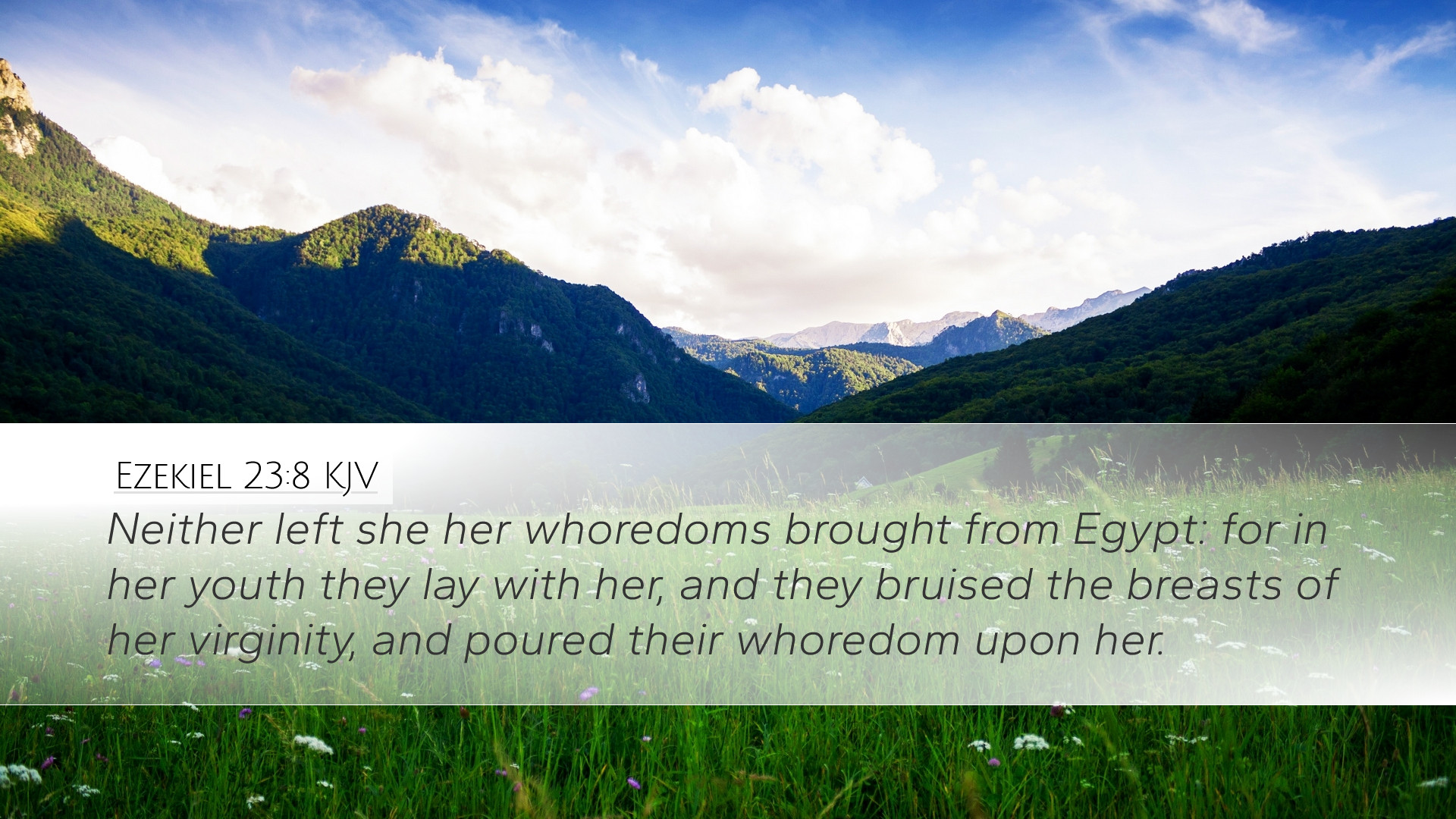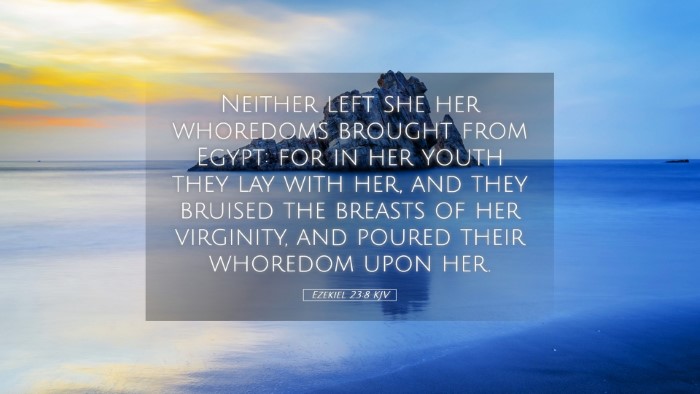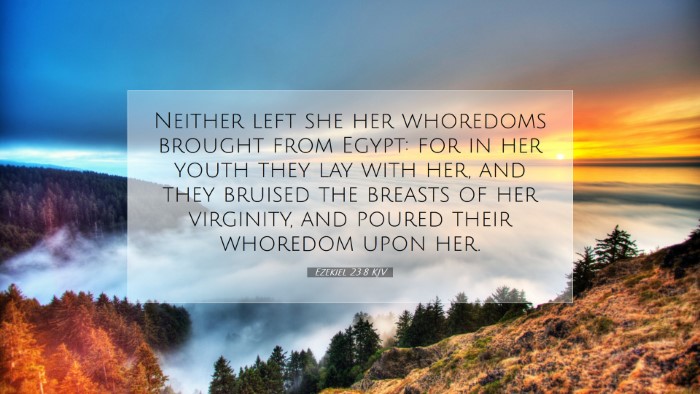Bible Commentary on Ezekiel 23:8
Ezekiel 23:8 (KJV): "She hath not left her whoredoms brought from Egypt; for in her youth they lay with her, and they bruised the breasts of her virginity, and poured their whoredom upon her."
Introduction
The verse from Ezekiel 23:8 serves as a critical indictment of the two sisters, Oholah and Oholibah, representing Samaria and Jerusalem, respectively. This commentary seeks to provide insights from esteemed public domain commentaries, emphasizing the historical context, theological implications, and moral lessons embedded in this text.
Historical Context
Ezekiel, serving as a prophet during the Babylonian exile, addresses the people of Israel while critiquing their unfaithfulness and moral corruption. The two sisters symbolize not only the two kingdoms but also the broader spiritual condition of Israel. Matthew Henry notes, "They are called 'sisters' to signify their close kinship and shared fate, yet they diverge in their paths of unfaithfulness."
Thematic Analysis
- Symbolism of Egypt: The mention of Egypt denotes the origin of Israel's idolatry and unfaithfulness. Barnes states that Israel's early experiences in Egypt were marred by the influence of foreign gods, which continued to haunt her even in the Promised Land.
- Whoredoms and Idolatry: The metaphor of "whoredoms" implies spiritual infidelity, as Israel turned away from Yahweh to worship foreign gods. Clarke explains that such language was not merely figurative but represented a grave violation of covenantal fidelity.
- The Tenderness of Youth: The phrase "in her youth" recalls the innocence of Israel when it was first chosen by God. Henry emphasizes that, like a youthful bride, Israel had the potential for a pure relationship with God, yet she succumbed to temptation early in her spiritual journey.
Theological Insights
This verse encapsulates the covenant relationship between God and Israel, illustrating the tragic consequences of idolatry. Adam Clarke highlights the spiritual implications, stressing that the nation’s infidelity is akin to marital abandonment, which God perceives as extremely grievous.
The Nature of Idolatry
Idolatry is portrayed not only as a misalignment of worship but as a deep betrayal of relational trust. The gravity of such betrayal is expressed in the physical imagery of bruised breasts, which symbolizes injury and loss of innocence. Henry notes, "The vivid imagery serves to evoke a sense of tragedy and loss not only for the betrayer but also for the betrayed."
The Continuity of Sin
Israel’s refusal to abandon her past sins symbolizes humanity's struggle with persistent sinfulness. Barnes observes that the text portrays a cycle of behavior where Israel remains entrenched in her former ways, reflecting how difficult it can be to escape entrenched sin patterns. This highlights the need for genuine repentance and renewal.
Moral Lessons
- The Encouragement for Repentance: For pastors and theologians, this verse signals the importance of addressing sin directly. It reminds the church that acknowledgment of past failures is crucial for spiritual restoration.
- The Serpentine Nature of Sin: Sin can often appear innocuous initially, but its true nature emerges over time. Clarke warns that Christians must be vigilant against gradually normalized idolatry within the church and culture.
- God's Faithfulness: Despite Israel's unfaithfulness, God remains ever faithful to His covenant. This serves as a profound reminder of God’s relentless love and desire for reconciliation.
Application for Today
For modern readers, Ezekiel 23:8 acts as a sobering reminder of the pitfalls of spiritual complacency and unfaithfulness. It challenges individuals and congregations to examine their lives and practices critically. Are there areas where they have normalized idolatry or are ignoring God's call to holiness?
Concluding Remarks
In summary, Ezekiel 23:8 provides profound insights into the nature of idolatry, the seriousness of sin, and the call to repentance. With contributions from commentators such as Matthew Henry, Albert Barnes, and Adam Clarke, the depth of this verse is unfolded, revealing its relevance for historical understanding and contemporary application.


